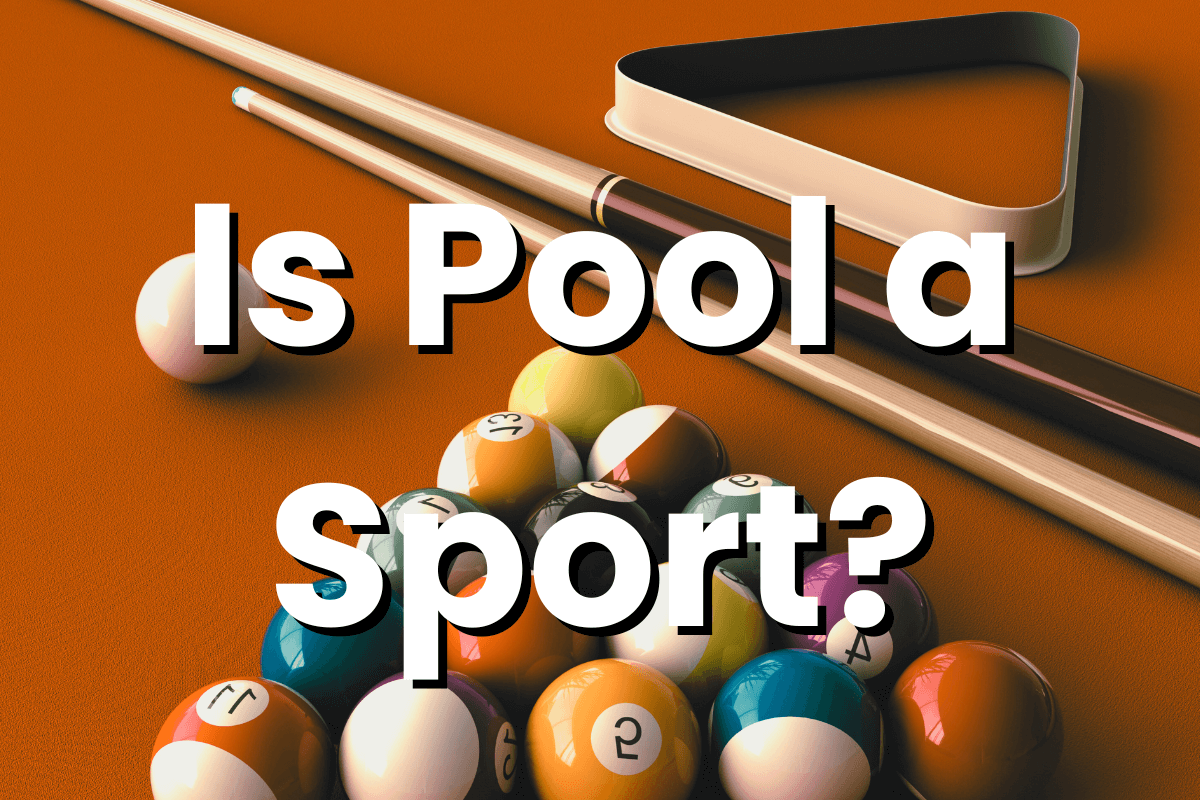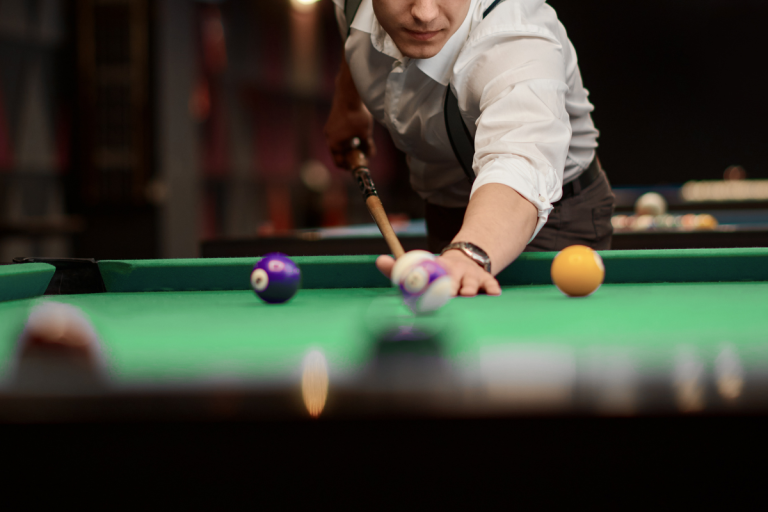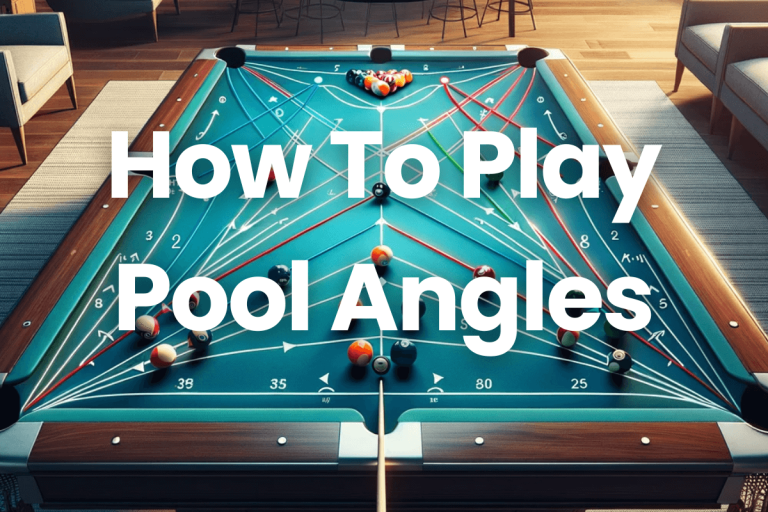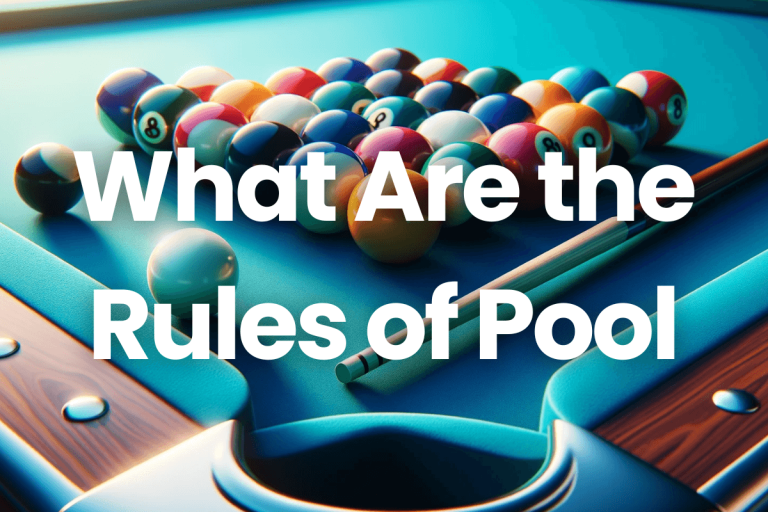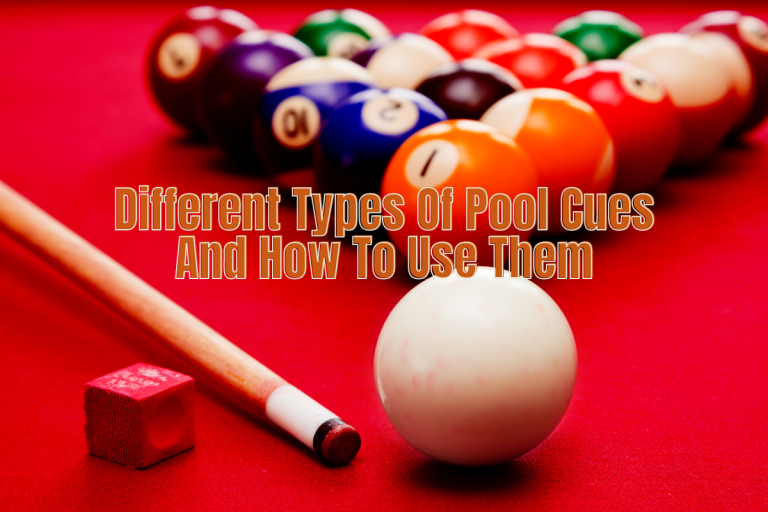Is Pool a Sport | Revealing the Verdict (2024)
Is Pool a Sport? The debate over whether pool qualifies as a sport has long intrigued enthusiasts and skeptics alike. This article delves into this discussion, exploring various facets from the pool’s skill requirements to its competitive landscape. We’ll examine the pool’s recognition by sporting bodies, its potential Olympic future, and its cultural impact. Our goal is to provide a comprehensive understanding of the pool’s standing in the world of sports, addressing its physical and strategic complexities, and ultimately shedding light on this age-old debate.
Understanding Pool and Its Variants
Description of Pool
Pool, also known as pocket billiards, is a popular cue sport that involves hitting balls with a cue stick, aiming to pocket them into holes around a rectangular table. The game is renowned for its strategic depth, skillful precision, and varied play styles.
Different Forms of Pool
Eight-Ball: Perhaps the most well-known variant, played with fifteen object balls and a cue ball. The player must pocket either a group of solid or striped balls, followed by the black eight-ball.
Nine-Ball: Played with nine numbered balls and a cue ball. Players must hit the lowest numbered ball on the table first, but can pocket any ball. The game is won by legally pocketing the nine-ball.
Straight Pool: A more traditional form where players aim to reach a set number of points by pocketing any ball.
One-Pocket: A strategic variant where each player is assigned one of the corner pockets to pocket all their balls.
Snooker: Though technically distinct, snooker is often grouped with pool. It’s played on a larger table with twenty-two balls, requiring players to alternate between potting red balls and various colored balls.
Global Popularity
Pool enjoys immense popularity worldwide, with major followings in North America, Europe, and Asia. It’s a common feature in bars, clubs, and recreational rooms, as well as in professional competitive circuits. This global presence has led to a rich diversity in playing styles, and tournament formats, and a vibrant, inclusive community of players and enthusiasts.
Defining “Is Pool a Sport?”
To determine whether pool is considered a sport, we need to apply the commonly accepted criteria used to classify activities as sports. These criteria help distinguish sports from other recreational or leisure activities:
Physical Exertion and Skill: Pool requires a significant level of skill, including hand-eye coordination, precision, and control of the cue stick. While it may not demand the same level of physical exertion as some other sports, the skill component is heavily emphasized.
Structured Competition: Pool is played in structured competitive formats, from local tournaments to international championships. There are established rules and formats for competition, indicating its nature as a competitive sport.
Standardized Rules and Regulations: Pool has a standardized set of rules, governed by various organizations like the World Pool-Billiard Association. These rules ensure consistency and fairness in play, a hallmark of recognized sports.
Skill Improvement and Training: Playing pool at a competitive level requires regular practice and skill development. Players often engage in training to improve their technique, strategy, and understanding of the game.
Objective Scoring System: Pool features clear and objective methods of scoring, based on balls pocketed and fouls committed. This scoring system helps determine winners fairly and straightforwardly.
International Recognition: Pool is recognized and played internationally, with a global community of players and fans. It is featured in international sporting events, further solidifying its status as a sport.
Pool in Competitive Arenas
Presence in Organized Competitions
- Pool has a strong presence in organized sports, with numerous local, national, and international tournaments held annually. These competitions are structured, adhere to standardized rules, and are often governed by major pool organizations.
- The competitive scene ranges from amateur leagues to professional circuits, offering various levels of play. This structure is indicative of the pool’s status as a competitive sport.
Major Tournaments and Championships
- World Pool Championship: A prestigious event that attracts the best players globally, showcasing high skill levels in 8-ball, 9-ball, and other formats.
- U.S. Open Pool Championship: One of the oldest and most respected pool tournaments in the United States, known for its tough competition.
- Mosconi Cup: An annual pool tournament pitting teams from Europe and the United States against each other, similar to golf’s Ryder Cup.
- WPA World Nine-ball Championship: An international championship recognized by the World Pool-Billiard Association, featuring top-ranked players.
Is Pool an Olympic Sport?
Examination of Pool’s Status in the Olympics
- As of now, pool is not an Olympic sport. Despite its popularity and recognition as a competitive sport, it has not been included in the Olympic Games.
- Discussions and debates continue in the sporting community regarding pool’s potential inclusion in future Olympic events.
Criteria for Inclusion in the Olympics
- The International Olympic Committee (IOC) considers several factors for a sport’s inclusion: global popularity and participation, governance and rules, gender equality, youth appeal, and the sport’s image.
- The sport must be governed by an International Federation that ensures compliance with the Olympic Charter and anti-doping regulations.
Conclusion
The discussion around “Is Pool a Sport?” can be affirmatively answered by considering its requisite skill, strategic depth, and structured competitive framework. While not yet gracing the Olympic stage, the pool’s journey toward potential inclusion highlights its status as a recognized competitive endeavor. The sport’s global appeal, adherence to standardized rules, and the physical and mental prowess required to excel all align with the defining characteristics of traditional sports. Whether in local pool halls or international arenas, the pool embodies the spirit and challenges of a true sport.
FAQs
What defines the pool as a sport?
Pool, as a sport, is defined by its competitive nature, requiring skill, precision, and strategy in cue sports where players use a cue stick to hit balls into pockets on a bounded table. It encompasses various games with specific rules, such as eight-ball, nine-ball, and straight pool, played individually or in teams. The sport is governed by international bodies that standardize rules, conduct tournaments, and rank players.
Can pool players be considered professional athletes?
Yes, professional pool players, who train rigorously and participate in competitive tournaments, can be considered athletes due to the skill and dedication required in the sport.
How does pool compare to other recognized sports in terms of skill and strategy?
Pool requires strategic thinking, precision, and mental focus, similar to sports like golf, chess, and archery, where planning and skillful execution are key.
Is pool accessible to people of all ages and skill levels?
Yes, pool is a highly accessible sport, enjoyed by people of all ages and skill levels, from casual players in local bars to professional athletes in international tournaments.
What are the physical benefits of playing pool?
Playing pool offers physical benefits such as improved hand-eye coordination, enhanced precision, and subtle muscle development, particularly in the arms, back, and shoulders.

